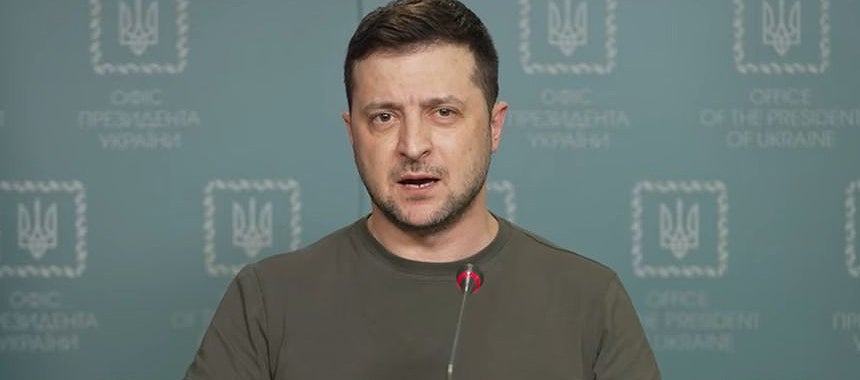David Hackworth
13 Dec 2021
Archive [May 1999]
For the straight truth on all things military, there’s no one better than Col. Hackworth, a soldier’s soldier (www.hackworth.com).

Rush: Colonel, thanks for making some time. I’m honored that you’re squeezing this into your day for me.
Hackworth: I’m very honored to speak to you. So we’re two honored guys, Rush. And please call me Hack.
Rush: All right. On Kosovo — tell me, is there anything that we’ve done right so far?
Hackworth: In terms of military operations that my country has been engaged in, since the Republic was formed, we have never screwed one up bigger. There are nine principles of war, beginning with surprise, simplicity, mass maneuver and so on. We have succeeded in violating every one of them. So we’re backing into the war in a typical Clinton way, with our butt first. We’ve just so badly exposed ourselves. We’ve telegraphed everything we’re doing. Look at CNN, and you can see the number of aircraft that are going in. These are our intentions.
We say we won’t use ground troops, and we didn’t pre-position them, which would have taken three or four months. So Serbia knows he can go and fight his battle on the ground, and so widely disperse his tactical formations, because he doesn’t have to use them to defend in a tight array for a ground attack. He can spread them out. That negates the effectiveness of the air campaign. They can’t find the tanks, they can’t find the artillery pieces, because they’re buried in the forest or buried in houses and so on. So far, Rush, we’ve succeeded in doing nothing right.
Rush: That is dispiriting. I was hoping for at least one thing. I didn’t expect it, but I was hoping. Now these mistakes that you rattled off, are they primarily military mistakes, or political?
Hackworth: From what I’m getting from my sources in the Pentagon — who are close to the top military guys — the uniform people have recommended that they use the principles of war. They’ve been shot down by a President who’s surrounded himself by half-wits — people like Madeleine Albright, Sandy Berger and William Cohen — who don’t know the first thing about the military. Soldiers lock their heels together when given an order, and they do it. So they’re going along with the Commander-in-Chief’s intentions. But the guidance he’s getting from these hair-brained folks around him is inadequate.
If ground forces go in — and I do believe ground forces will go in — I think there may be a rebellion, a night of the Generals saying: “Mr. President, these are my stars: you know what to do with them.” Remember, the Lieutenants of 1965 and ‘66 are the Four Stars of today. And those guys in ‘65 and ‘66 were the ones leading the platoons and companies through the jungles of Vietnam and bitching about their Chiefs of Staff. Guys like Wheeler, not standing tall to McNamara and LBJ. One of the reasons we lost in Vietnam was we succeeded in violating every principle of war, too.
Rush: I know these similarities are breathtaking here, especially given who it is that’s attempting to prosecute this war. Is there any respect by uniformed personnel for the civilian leadership?
Hackworth: I have been in the military or around the military as a reporter now more years than you are alive, I think — for 53 years.
Rush: That’s true.
Hackworth: I have in these 53 years never heard the attacks that I’ve heard from colonels and sergeants and privates about the Commander-in-Chief. He is, I think in a word, uniformly despised.
Rush: How long, then, can it be before there is this uprising, and why hasn’t it happened before now?
Hackworth: I think that the soldiers and the people I just described, given an order — they’re regular army, they’re all volunteers — they will march to the drums. But I think that the uprising may come in a number of top-ranking people. The Commandant of the Marine Corps is close to the end of his career, the chief of staff of the Army — both of these fellows retire in June. Maybe even General Shelton, the Chairman of the joint Chiefs of Staff, will stand up and tell the Commander-in-Chief that what he’s doing hasn’t worked so far, air power has just blown it and won’t succeed.
It’s kind of like NATO is a great giant standing on top of a pool table, if you will, and the Serbians are little ants on the table, and this giant’s holding a great sledge hammer and he’s coming down one at a time. It’s that kind of overkill. There’s no way a conventional army can fight NATO because NATO is simply too powerful. And there’s a lot of collateral damage, Serbians and Kosovos who are dying, while these hammer strokes are going down. But in the end, when we put the ground forces in, we’re going to be faced with the partisans.
In World War II, the Germans started the war exactly the same way we are, with air power. This started in ‘41, They slammed in 32 divisions, and in May of ‘45, the Germans left. They left 770,000 Nazi casualties. The fight in Yugoslavia so tied up the Germans that they drew divisions from the Russian front, they drew divisions from the Western front. And you might say that the fight the Serbs presented in the middle of the belly of the Nazi apparatus was able to weaken the other two fronts. So it really, in a way, cost the Nazi Germans the war.
They did it, Rush, without one tank, without one airplane, without one ship. It was guerrillas, as we saw in Vietnam, attacking from the shadows, behind trees, hit and run, make the invader bleed and then run away.
So the next phase I believe, once we put ground forces in, will be: Will we be able to stay in that swamp, and will the nation allow our young people to sustain those kinds of casualties? Will we continue this when the body bags start coming home?
Rush: I’m 48, and I have never in my life seen the media spoiling for war as they are with this one. The media — and you know it because you’re part of it, you’re a guest on these cable TV shows at night — can’t wait for ground troops. They’re trying to force it on Clinton, it appears. I have been asking for anybody to tell me what the definition of victory is in this situation. What is victory that will allow us to claim it legitimately, and then exit? Can you tell me what that is, and if you can, how do we achieve it?
Hackworth: You can’t have victory when the people of Kosovo have suffered the way they’ve suffered. If you said to them, “Hey listen, let’s move the clock back to 23 March. You want to stay the way you are, with Milosevic beating you up once in a while, or do you want to be destroyed and become refugees without homes and losing your families?” I would bet you every person there would say, “Under Milosevic, at least we had a house and something in our belly.” So I don’t think there’s any way we can get victory from this. Maybe Clinton will be satisfied, but he’s been so silly to get us into this thing, Rush, with his blind stupidity in terms of those principles of war, that I’m afraid he won’t have the good sense to get out of it when he can — and who will suffer are the people of Yugoslavia. To Clinton, it will be a matter of saving face. Young people will die because of his false pride.
Rush: When could he get out of it? I don’t even know that we have an objective anymore, because what we originally set out to stop we’ve caused more of. So how is victory defined? What would be that point that you would suggest we could get out that Clinton will miss?
Hackworth: The Brits went into Cyprus 30 years ago to resolve the confrontation between the Cypriots, Turks and Greeks. They’re still there. I would give you a longer period than the Cyprus problem. Initially we’ll take casualties, then they’ll be defending. But then to provide the security, I would say at least 30 years. Thirty years, at the cost of — what? As you know, Bosnia is now into its fourth year and we’ve got 20 billion in there. We’ve already spent six billion on this mess that we’re into now. Once we’ve got ground forces doing the peacekeeping and guarding the Kosovos, I’d say this thing would cost at least two billion, maybe three billion a year. And then we’ve got to rebuild the country because we’ve got to undo what those bombs blew up.
Rush: I got William Cohen’s Secretary of Defense report from 1998. I’m not going to go through it in detail, but on land, in air, at sea, in the reserves, personnel, material, ammo, armaments — we’ve been cut in half in the last ten years.
Hackworth: You could say safely we’ve been cut in half. But operation tempo — missions — have increased 300 percent.
Rush: And we have not replaced anything. We are deployed more around the world at any one time than I can remember in my life. What really worries me is that it seems to me we have the systematic destruction — maybe there’s a better word for it — of the military going on here. That P-117 that got shot down was built in 1982. We’re announcing that we’ve got a shortage of cruise missiles. This is mind boggling, to my eye, uneducated in terms of military matters, this almost seems to be systematically on purpose.
Hackworth: I don’t know if that’s the case, because I’m not living inside — thank God I’m not — of Bill Clinton’s head. But the morale of the U.S. military, reserve, national guard and active duty, is the lowest I have ever seen it. We are committed around the world, mainly on meals-on-wheels, Salvation Army, peacekeeping, peace-making missions, and the military is stretched far beyond the breaking point. If it wasn’t for those incredible people that make up our military it would have snapped a long time ago. They’re trying to do too much with too little.
The cruise missiles are something you can immediately say, “Aha, here it is, but it’s everywhere, Rush. It’s on the airplanes, it’s on the tanks, it’s on the spare parts, it’s on every area of the military. They’re just trying to use, as we did back in the ‘30s before World War II, chewing gum and baling wire to keep it all together. Then you say to yourself, “Wait a minute, we’re spending about $300 billion a year, and that $300 billion has been pretty constant. The forces have been cut in half. So they should have far more money than they need.” But we don’t have missiles, we don’t have spare parts. The question is, Where the hell is the money going?
Rush: Actually, its been around $250 billion under Clinton.
Hackworth: I’m adding the intelligence and the money that goes to energy for nuke weapons. So it’s around $300 billion for security.
Rush: But your point is well taken; we have not cut military spending by half, yet the size of the force has been cut by about half.
Hackworth: And the morale is as low as I’ve ever seen. A point that touches on what you were saying, how the media is beating the war drum. You look at the polls now, a high 70 percent of Americans feel we should go in there with ground forces. I contrast that with my e-mail. Normally I get 500 a day, mostly from soldiers and sailors and airmen and so on, but it’s been jumped up to about 1,500 since the war began. I have an incredible percentage of veterans, people serving or people who have served, absolutely opposed to the war — in the 90 percent.
My conclusion is, that civilians who haven’t served — and in the age group of 35 and under, only 31 percent have served, so 69 percent haven’t served — are the ones who are real gung-ho. They were educated by watching Desert Storm on TV, those green bolts going through the sky, or by video games or by Hollywood. That’s their appreciation of war; it’s fun, it’s good, it’s a video game. Whereas the fellows who have worn the uniform and have fought wars know what war really is — it’s horrible, it’s wasteful, and it’s terribly bloody.
Rush: And it’s always the last option the generals want to take, right?
Hackworth: Most soldiers who have seen combat are very reluctant to squeeze the trigger. If you can talk a little bit more, go ahead and talk. Clinton, who has violated every principle of war, had the full month of April. He could have talked through the Easter holidays and not looked like the menacing individual that he is, but instead he attacked during the worst time, during the time of the Balkan’s worst weather. He couldn’t employ his air — and it was essentially an air campaign — because they couldn’t see the target through the clouds and the fog.
Rush: And laser-guided bombs couldn’t be guided because it doesn’t work through clouds. That is just another item in the long list of puzzlements that cause a lot of people to have zero confidence about this. I want to go back to the polls, because I frankly have been a little surprised to see 66 percent in one poll, 73 percent in another poll for ground troops, for the war. Hack, do you have an explanation for why the American people seem to be so eager for this?
Hackworth: They’re very much influenced by television showing the horror of the refugees, the bombing damage and all of that. So now we have Milosevic whispering peace. But Clinton is such a bully, and I don’t think wise enough to understand, so I’m not sure that he’ll connect with the signal the man’s giving him.
Rush: What signal?
Hackworth: First of all, Milosevic has achieved his strategic goal, which I think is to divide Kosovo, that province, in half. They take the northern half and then say to the Albanians, the Kosovos: “You can have the southern half, and if you want to make a greater Albania because you’re contiguous to them, if you want NATO and your friends to form a separate republic of what’s left, go and do it.”
So he’s achieved his military and strategic objective. Also, he has stood up, to where the Serbian people will say, “He’s fought for us.” He’s able to say, “Look, I was David fighting Goliath. We didn’t have a chance, but at least we didn’t just roll over, we stood tall and fought.”
Rush: So, he won.
Hackworth: I think that he’s won the war in terms of military applications. He’s held the initiative from the get-go.
Rush: He’s clearly gotten what he wanted. He wanted the ethnic Albanians out of there, and whether or not we intended to, we sped up the process. He can now sue for peace. What worries me, though, is that if he does that along with the Russians, if he says “Okay, we’re through,” Clinton can say, “See? I brought him to his knees; the man’s given up.” And Clinton can go out and claim victory, when in fact Milosevic will have gotten everything that he wants. If we think Monica Lewinsky was fun, you wait until that While House spin team hits cable TV and the networks 24 hours a day spinning this: Bill Clinton better than Lincoln, better than Patton.
Hackworth: Well, they’re already doing it, Rush. If you go on these TV shows, you’re up against that. They’re out there beating the drum beat, as is most of the Democratic Congress. The bottom line, just to hitchhike on what you say: the objective of war is peace. Peace is in the wings now; we should be smart.
Ronald Reagan in 1983 jumped into a fight he should not have jumped into in Lebanon, and once he lost 241 people and realized his position was untenable, he had the guts to say, “Enough is enough.” He didn’t announce victory and pull out; he said, “We’re pulling out,” and he did. It takes a great leader who’s got the moxie to know when to withdraw, when to back off from a fight, and I’m not sure Clinton has that kind of moxie. I know he’s not getting that kind of sage advice from his civilian advisors.
Rush: You’ve said that NATO general Wesley Clark is “the wrong guy for the job.” Why is that?
Hackworth: He’s not a muddy-boot soldier. He is what they call in the trade a perfumed prince.
Rush: A perfumed prince!
Hackworth: Someone who smells good. He’s a boy from Arkansas who’s connected to Clinton from ‘66 at Oxford. He has gone up the political route. He was Alexander Haig’s aide-de-camp; he was a White House fellow. He didn’t have the kind of assignments that a real muddy-boots grunt would have, someone like, Schwarzkopf. If you had Schwarzkopf running the campaign, you would see a far different campaign, meaning you would hit their forces with overwhelming power, and thump the son-of-a-bitch in the head with a two-by-four on the first hit so he’s seeing stars from then on.
Rush: And don’t tell him beforehand you’re going to do it.
Hackworth: Yeah. All we’re doing is little pin-pricks. I’ll give you an illustration. This is something I can’t work out, but two weeks ago Clark asked for Apache helicopters, and it took two weeks for the Administration and NATO and all of the bureaucracy to say, “Yes, you can have Apache helicopters.” The Apaches are ready to go. Now I got an e-mail from a very senior fellow who knows a lot about Apaches. He’s commanded them and flown them. He said it would take two days max to fly from where they are in Germany to be deployed in Albania and have all their logistics crap in place to support them.
Rush: Right, they’re a self-deploying asset. I don’t understand this either.
Hackworth: They’re saying at least four weeks. Now what’s this all about, Rush? Are we seeing some more fast footwork? Or is this proof our military is almost broke?
Rush: Well, what do you think it’s all about?
Hackworth: I’ve been thinking hard on it, and I just can’t come to the conclusion whether it is a threat to Milosevic and we’re bringing in our awesome weapon, the Super Apache that destroyed 12,000 tanks during Desert Storm: “You better watch out, but it’s going to take us four weeks to get there” — hoping he’ll fold his hand.
I think it’s another bluff, just as air power was. Because once those Apaches get there, I’ll bet you a buck you’re going to see Apaches shot down quick smart, because they’re very fragile, they have to fly low and slow. And every other Serbian soldier carries with him something that looks much like a stove pipe but it’s a shoulder-fired ground-to-air missile that can go about 1,600 meters. So they’re going to knock down birds.
Now the support unit — and I want to double-emphasize, all-caps, exclamation marks — the support unit that’s coming from Germany to support the helicopters, I want to tell you what that support unit is composed of. A mechanized infantry battalion, a rocket battalion, MLRS battalion, and a logistics tail. That’s not what you could call a humanitarian support unit.
So my scenario is, an Apache gets knocked down, they put a ring of missiles around it to try to keep the Serbians from getting the crew and the airplane, they put other people from this mech-battalion either in tanks and army personnel carrier or in choppers and drive them to the site of the downed chopper and then they won’t be able to get out, or they’ll get hung up in a fire fight and they’ll need more forces.
This is exactly what happened in March of 1965 in Da Nang. If you’ll recall, we went to Da Nang to secure an air base; the Marines put in two battalions. The Marines said, “Look, we can’t secure this air base, we’ve got to extend out from it to get beyond mortar and artillery range.” They extended out from it and got into a fight they couldn’t handle, so the Marines had to be puffed up, reinforced. Suddenly you’ve got two regiments on the ground, suddenly you’ve got two divisions on the ground, suddenly you’ve got 600,000 men on the ground and a thousand people being wounded or killed every week. And that is how I see this thing accelerating.
Rush: How long will the American people support it if what you see eventuates?
Hackworth: I went with the first brigade, 101 Screaming Eagles in May of ’65. We were the first unit from the United States to deploy, and the percentage supporting it, “All the way, LBJ,” was in the seventies. By September, that would be four months into the war, it was down in the 40s and it was going downhill fast.
Rush: But that brings up a good point. There is no draft today, so the people who are going to be wounded and killed will be all volunteers. They won’t be the sons and daughters of the bankers and doctors and so forth who got all bent out of shape during the Vietnam era. The fact that there’s no draft gives Clinton a little insulation.
Hackworth: Yes, that’s the sad part. But it ties into what you asked before — a military so stretched, so weak, that we’re going to have to do two things: We’re going to have to call the Reserves, and call the National Guard and take fellows from there to fill up the squads, fill up the platoons and air crews and so on. And if the fight continued and got into the worst-case scenario, that partisan kind of war that the Germans experienced, and we experienced in Vietnam, then obviously the draft would come back. Because we’re going to have to fill up the squads and the platoons. And when that happens, then you’ve got great concern across the nation with the doctor’s son, the lawyer’s son and daughter now — I emphasize the daughter — being hung up in the war.
Rush: You’ve stated that your mission currently is to ensure that American troops are never put in harm’s way without the right training —
Hackworth: – without the right leadership and without the right gear.
Rush: Precisely. We’ve got political correctness. We’ve got this administration using the U.S. military as a social laboratory.
Hackworth: Yep.
Rush: My question is, with all this gender sensitivity training and gender equity and so forth, are the people we are training for battle, actually ready for war today?
Hackworth: I think that some special units are. The Marine Corps, the Rangers in the Army. But I think for the average line doggie today, the standards have been so lowered because of all the things you cited: gender norming and political correctness. There’s more classes spent on “consideration for others” than are being spent on getting ready for war, and sticking a bayonet in somebody’s belly.

Let me talk about those three POWs. They were not green recruits, Rush. Two of them were sergeants, and one was a corporal, a specialist. They were all airborne, they were all air assault, based on the badges on their uniforms. They were not little kids. They were professional soldiers in an elite reconnaissance squadron in Macedonia. And remember, as a little kid 15 years old, I fought the Serbs north of Trieste, ‘46, ‘47, ‘48, ‘49 and ‘50. I know them well. The first dead person, American, I ever saw was killed by a Serb. The first bullet that snapped over my head was fired by a Serb. So I know that enemy. And I couldn’t believe that there weren’t some dead Serbs on the ground. Why didn’t these guys shoot back? They had time to send a radio communication. So what does that mean? It might mean exactly what you’re saying in your question. It’s as though they have been so softened by these other things. They’re not ready for war.
Rush: Now to somebody like me that is both shocking and frightening. The possibility that they themselves didn’t fire back, not because they were ordered not to, but simply because it didn’t occur to them.

Hackworth: There’s a military code of conduct, and the first article of the code of conduct is: “I will never surrender of my own live will.” That means you’re going to go down fighting. A trained soldier, and I’m not speaking of some idiot that hasn’t been shot at, but a good trained soldier, is never going to give up. And if he’s going to go down, there’s going to be a pile of dead guys that he takes out before they get him. So something is wrong. That those three men suddenly threw up their arms like Iraqi solders tells me that maybe — and I hope to God that I’m incorrect — but maybe this long term, almost eight years, of destroying the high standards that make a combat soldier, may have destroyed the combat readiness of our force.
Rush: You wrote a column about these three guys, asking some of these questions, and you made these points, but you also said that the whole thing “doesn’t pass the smell test.” I assume you mean, Why were they out there alone? Why were they in a situation where they would be captured in the first place?
Hackworth: That’s right. And the bottom line of why they were captured, why they didn’t shoot, fire back and kill some people and go down fighting. But I do know from sources there in that unit who are very angry that there’s a rebellion almost going on within the leadership of that unit for what happened.

Those three men were sent on a job that a force ten times the size should be sent on. So in a microcosm, they represent what is wrong with our armed forces. Boys were sent to do a man’s job, because our forces are that far stretched.
North Korea, a war that never ended, just had a cease-fire. So we’ve got that war possibility bubbling; we have an ongoing war with Saddam Hussein. We’ve got a war going on with Iraq. And we have a war declared last August by the President himself, with Osama bin Laden. So we’ve got four wars simultaneously, and we can’t even do one war right.
Rush: Don’t forget we’re still deployed in Haiti, and elsewhere. All this makes us extremely vulnerable. What would happen if the Chinese decided to make a move on Taiwan right now?
Hackworth: I think that if the Chinese decided to retake their province, it wouldn’t be a very difficult exercise. I think it would be a walk in the sun. And if the North Koreans wanted to attack South Korea, we would have a hard time backing up the two brigades of U.S. infantry we have there. We’re in that kind of situation all around the world.
Then you look at Russia, who has deployed ships in the Adriatic. One of those ships, a cruiser, is a high-fangled intelligence ship. It has the capability, Rush, to monitor and track every airplane. It has aboard it a radar called the Doppler radar. It doesn’t lock on to the aircraft itself. It locks on to the trail the aircraft leaves. It can track B-2 stealth bombers, F-17s, the stealth fighter. And it can immediately report to Serbian air defense their track, their plot, their azimuth, every detail on them. And not only tell them they’re coming but tell them exactly the azimuth they’re coming on. So we’re really putting our aviators in serious jeopardy.
At the same time, you’ve got ships at sea at night. All you need is one lunatic, one crazy fanatic sailor on a Russian ship to say, “Those Americans — they’re the ones who destroyed the Soviet Union”, and push a button. And if one missile goes sailing toward an American ship, many more will respond, and guess what? Russia and the United States are in a serious gunfight. Even though their military is badly busted, they do have 7,000 nuclear war-heads on ICBMs. It would take about a minute to re-align their computers, point them at the targets that they’ve been pointed at for almost 50 years. I mean us.
This thing has not been thought out. Like the body bags coming home, nobody has thought out the consequences. This is Somalia, which was a disaster, in a far bigger scene.
Rush: Scary. I guess you could say that none of what you just described as a possibility would be a possibility had we not embarked on this particular mission.
Hackworth: That’s right. In my view — and I’m sure many people in the White House are saying this — we embarked on Mission Impossible, and the President hasn’t the wisdom to realize that.
Rush: What is his motivation, do you think? Is this legacy building, nation building? In your heart and soul, military mind, political mind, what’s he doing?
Hackworth: I think the man is an arrogant individual who doesn’t have one clue of what happens in the real world. He’s never held a job. He is not street smart in any way. He’s surrounded himself with people who are not street smart. So they think that bombing and smart weapons can do the job.
Rush: This is all going to have to be put back together. Now, Reagan only had to deal with a four-year problem that Carter had wrought. But this is going to be eight years with all this deployment and no replenishment. How long is it going to take, Hack, to get the military back up to where the people who are responsible for it feel confident?
Hackworth: It’s going to take a lot of money, a lot of realignment, a return to the old standards, the high standards, of “the more sweat on the training field, the less blood on the battlefield.” And you just don’t press a button and turn out a cruise missile. With high-tech weapons, if money were available, you’re talking about a couple of years, after you turn on the assembly line. We do have some wonderful people in our armed forces. Everybody that’s the best and the brightest hasn’t quit. A great number of good people have quit, but there’s still a nucleus of damn good people there. Reagan took about two to three years to get our forces back on track. And I think it will probably take the same period of time, given the proper leadership within the military — and I’m not talking about someone like William Cohen or these politicians that they end up putting as Secretary Army, Secretary Navy, and Secretary of Air Force. I’m talking about people who know about leadership, and know about jerking an outfit from its boot straps and pulling them right straight up, getting them together. In this regard, what we need to resolve this is certainly the anger of the American people — demanding that the American defense forces, designed to defend America, not the world, are squared away.
Rush: And you would like to have a President who can remember an America victorious at war.
Hackworth: You know what it takes? Leadership. In December of 1950, I was in the Eighth U.S. Army and we’d gotten our butt cleaned the month before in November. We had been hit by a half a million Chinamen, sent reeling 300 kilometers from the Yalu River back south of Seoul. Morale was low, there were no supplies, we went days without eating. And our Army commander, General Walton Walker, was killed. We thought that was the end of it. Suddenly, one guy came on the scene — General Matthew Ridgeway — and he turned that defeated army around in six weeks. I was just a 19-year-old sergeant, Rush, and I saw these kids turn around and look to the right, and there’s the Army commander on the front lines walking along with them. If he was with my outfit, he must have been with every one of the outfits. He was there. He set the example. And suddenly, we were no longer running for the Sea of Japan, to swim back to Japan with our tail between our legs. We were pointing our bayonets to the north, towards the Chinese. And it was an army on the attack. And we went on the attack and defeated them. All it takes is leadership.
Recent Stories

De Blasio Imposes Vaccine Passport Mandate In NYC test
This is an excerpt that Jaime updated. ffffffffffff

Buck Draws Heat For Speaking Truth About Simone Biles
I just wanted to establish what the current president was saying back on ABC News in March to George Stephanopoulos about his feelings on Governor Cuomo.






